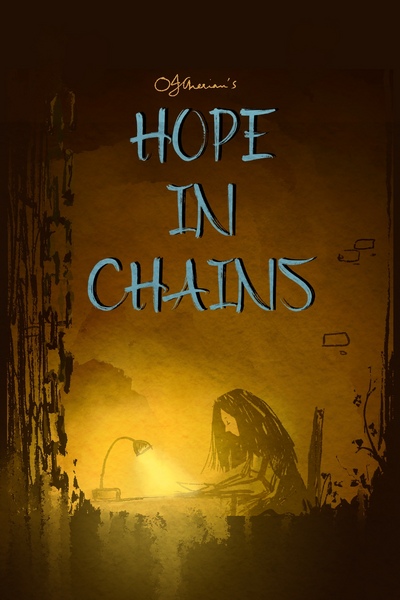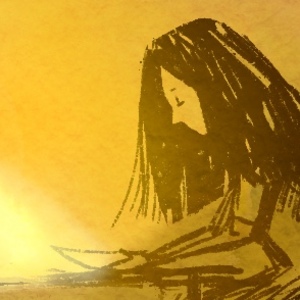“Shall we go to the Leech Valley, Amma?” It was the third
time that Jasmine had asked the same question.
It was a sunny afternoon. The kind of day that tempted you
to celebrate, even when you didn’t feel like it. Usha relented.
“Okay, Thangam,” she said. “Put on your sandals and we will
be on our way.”
Leech Forest lay about a kilometre and a half further up
into the mountains. It occupied a narrow valley beyond the
Pachalur village across from where they were. You had to go
through the village and up the next hill. An indistinct path by
the side of the road took them through a crowd of cottonwood
trees, and on to a wide expanse of grass interspaced with rocks.
Standing here, it felt like you were on a shore, with the woods a
vast green sea stretched out below you. At the further end of
the meadow, rough steps hewn into the rock led them down
into the jungle. Slowly, they descended into it and left the
world behind.
At the bottom of the wide gully ran a playful stream of
crystal clear water. It skipped across the rocks and leaped over
a boulder into a bubbling pool of delight. It was so small, an
adult could hardly have done much with it, but it was just right2 Love and Hope
for Jasmine—her favourite spot. She sat chest deep in water
and let the stream cascade over her head and shoulders. Tall
trees spread a leafy canopy high above them. The stream and
forest bed got no direct sunlight, but it was bright; the very air
was suffused with a mystic green radiance.
As the afternoon wore on, things changed. Unknown to
them, fickle weather had turned face. It had become darker, as
though someone had dimmed the lights. “It’s enough, Jasmine,
you’ll catch a cold; come out,” shouted Usha.
Cocooned in her watery nest, Jasmine pretended not to
hear. Soon, her mother’s strong arms reached into her retreat
and pulled her out. She felt smothered as a bath towel
descended over her head; her scalp and hair were given a good
rub. The distant rumble of thunder made her mother stop
momentarily.
“There is rain coming, we must hurry, Jasmine,” said Usha
as she helped Jasmine into her clothes. They went up the forest
slope briskly. It somehow began to become bright again. When
they had almost reached the open meadow, Jasmine ran ahead;
something had caught her attention. Sunlight had burst in
through a rent in clouds and bathed the clearing with gold.
From below where her mother stood, it was as though Jasmine
had walked onto a floodlit stage. She was chasing a red and
black swallow-tailed butterfly. She reached for the sky as it
winged its way out of reach.
She glanced at her mother before taking off again around a
clump of rocks. This time, it was a pair of much smaller
butterflies. Their wings were lilac around the centre, melding
into a lemon yellow border. They cavorted in wild circles
around each other, like a pair of binary stars. They did not let
up one bit on their whirling dance as they gracefully swung
away from gleeful hands that reached out to them. They
disappeared over a clump of thick bushes at the edge of the
meadow, leaving Jasmine staring after them in awe and
wonder.
By this time, Usha had come up behind her.
“Don’t chase the butterflies away, Thangam.”
“Do you think they were friends, Amma? Why did they go
around each other?”
“Maybe they love each other, Thangam.”
Then, after a thoughtful gap, and almost to herself, Usha
said, “Love makes you do silly things, but it’s what keeps the
world going around.”
Jasmine did not know what made the world go around, but
she threw her arms around her mother’s waist and said, “I love
you, Amma!”
The rain caught up with them just as they reached the gates
of the campus. Jasmine had to be wiped dry all over again. But
she did not seem to mind as she smiled up at her mother and
gave her another hug.
Later that night, Usha sat by herself at her desk. They had
returned from Leech Valley three hours ago. It was now three
weeks since Suresh had gone, and two years since their
wedding day. In her thoughts, the dates and hours had ceased to
exist, except as memorials to the life they had shared.
Usha sat, hunched and immobile. A small lamp lit up a
circle of light within which her delicate hands held a letter. And
now, as she straightened and stared vacantly into space, her
silhouette rose above the array of dim shadows that lined the
opposite wall. If anybody had seen her outline at that moment,
it would have been hard to forget. This face seemed to tell a
thousand tales of timeless sadness, and yet, with high cheeks4 Love and Hope
and pinched nose held up, it had a defiant beauty that
whispered ‘hope’.
Jasmine had gone to sleep and all was quiet. Outside,
beyond the fence, night sounds drifted in from the dark—the
chirping of crickets, the occasional croak of a toad. Far away, a
dog barked in fits and starts. Usha had not moved; her eyes
were still not focussed on anything in particular, but those
gateways to the mind bore witness to the grief inside, and filled
up with tears. When she looked down at the letter, it
overflowed like molten wax and dropped down on the page,
adding yet another smudge.
My dearest Usha,
If Dr Ravikumar has given you this letter and you are
reading these words, it means that I am well on my way.
In time, she folded the letter, returned it to its place in the
drawer, switched off the light and climbed into bed. She lay
awake in the darkness for a long time, and finally tossed and
turned her way into fitful sleep.
Many hours later, that familiar dream came knocking.
They formed the apices of a triangle, the three stars that
looked down at her from the southern sky. One of them was
smaller than the rest and very faint. The smell of the sea was
everywhere. Salt spray peppered her cheeks and mingled with
her tears, and both of them tasted the same when they came
down over her lips. Suddenly, the boat hit a swell and took a
jolt that jarred her spine; the next moment, she was in the
water. Now going down, she could still see the triangle of stars
through the blue water, which soon turned aquamarine, deep
green and inky grey. She felt her heart sink within her and findOby Cherian 5
depths that her body could never reach. I will never see him
again, was what she thought.
But this time, it was not her father’s face that came floating
up into her subconscious, it was Suresh’s. She could see him
clearly, and then it faded away and all was dark once more.
The sun came in through the eastern window and draped
itself in wavy rectangles over the table and across the floor. But
it was not the sun that awoke Usha the next morning. Grubby
little hands caressed her face.
“Amma, I am hungry,” whined Jasmine.
Like most children whose natural rhythms have not been
tampered by the trappings of civilisation, Jasmine had woken
up with the dawn. She slid out of bed and walked into a new
day. She had curly black locks hanging over both ears and dark
brown shining eyes. Her crème and chocolate skin was not as
dark as her mother’s, but not as light as her father’s (her
biological father, whom the child could hardly remember).
Most times, she was a vivacious little creature who could
charm the scowl off the most unfriendly face. She made them
smile, every one of them.
She went looking for her doll and found him face down on
the steel trunk that stood in a corner of the living room. She
picked him up on the way to the sofa, climbed on and knelt
beside the window. She placed him on the sill, looked out
blankly and said, “Will you also die one day, Tinto? Will you
become thin like Suresh Appa?
“My Appa died before I knew him. Grandmother says it’s
my bad luck because I was born on a Saturday. Is that true,
Tinto? Am I unlucky? Is it unlucky to be born on a Saturday?
When were you born, Tinto?”
Strange and weighty thoughts for a four-year-old, but have
them she did. Outside, the deep resonant call of a coucal made
her smile, and then the jolly face of Sindhu her friend came to
mind. She forgot all about death and dying. She stretched both
her arms high above her. Why does it feel so good to stretch?
she wondered. Soon, her stomach stirred inside her, reminding
her that she was hungry. She gently laid Tinto on the sofa and
went trudging into the next room to wake up her mother.
Usha stirred, opened her eyes and looked into her
daughter’s face.
“Oh, Thangam! Have you been awake for long? I am sorry.
Amma slept late today,” she said apologetically as she sat up,
raised her hands and tied up her loose hair into a rough knot.
She got up and walked to the bathroom. She splashed some
water on her gaunt face and looked in the mirror. She looked a
sight! I will have to hurry, thought Usha. She had a long day
ahead—breakfast for both of them and then she would have to
start packing. This was a large residence meant for doctors, but
now that Suresh was not there, she was not entitled to occupy it
any longer. Already, they had been kind to allow her to stay
three weeks. She would have to shift house today, to one of the
nurse’s quarters, about 200 metres away.
Perhaps it is just as well I am moving, she thought to
herself. It would have been difficult to be here in this place she
had shared with Suresh. It would be easier to start afresh in a
new house.
After breakfast, Jasmine went out into the garden with her
dolls and Usha was left alone. She went around from room to
room, not knowing where to begin. Memories beckoned to her
from every corner.
Yes, she would start with the kitchen—where there would
be little to remind her of Suresh—that would be the easiest. So
she set to work; the pots and pans would go into an old carton
and the bottles into another. In half an hour, she was almost
done with the kitchen, only the tidying-up to do. This she
would leave to the men. Veeran, the ward aide, had promised to
take half a day’s leave to help her shift.
She took a break, went out and sat on the porch. She heard
the nine-thirty bus labouring up the road. Murali, her brother,
would be on it. He lived in Kariyampatti, a small village on the
plains, and was now on his way up to help his sister shift
house. The road started from Oddanchatram, the market town
at the foot of the mountains. It slithered up the lower range of
hills before levelling off across the Parapalar valley at 1,000
feet. Having crossed the basin, it skirted the lake and climbed,
taking nine hairpin bends to the high ranges. Pachalur at 4,000
feet was the first large village on this mountain road that
reached further into the Western Ghats of southern India.
The morning sun seemed to give everything an extra dose
of life. The leaves reflected a vibrant green, the bees buzzed
around with added zest. Usha looked to her left to see a sunbird
flit across to a patch of garden, where it settled on a stem and
deftly dipped its long beak into one of the red trumpet-shaped
flowers. Behind this patch of coral flowers was the pine tree,
and towering above it in the distance was the peak of the Boar
Mountain. Wild boars had been sighted there in the past. How
often she had sat here with Suresh.
The Hill People’s Cooperative Hospital and its campus was
spread across five acres of gently sloping woods. It overlooked
the Pachalur village on its southern side and reached up north
to a broad ridge where the land fell away gradually into the
Reserve Forests below. The hospital occupied the lower ground
and the staff quarters took up the higher end of the campus.
The doctors’ residences stood towards the eastern edge of the8 Love and Hope
ridge, where the drop beyond was precipitous and therefore, the
view was incomparable. This was where Usha now sat. The
whole of the Parapalar valley was set out before you. Her eyes
settled on the silvery blue surface of the lake far below.
A river had once meandered through this vast valley,
disappearing over its north-western edge, running through a
narrow gorge before plummeting over a two-hundred-feet
waterfall to the flatlands below. Forty years ago, they had
thrown a gravity dam across this running water at the narrow
mouth of the gorge, piling back the water to form the swollen
Y-shaped lake that now shimmered in the distance. The valley
held this body of water in its hollow, as a cupped hand would
hold a bit of precious oil.
I am going to miss this view, thought Usha as she went
back into the house. She got a couple of suitcases down from
the ledge in the storeroom and carried them to the bedroom.
She opened the cupboard and arranged her clothes into one of
the suitcases. Then there were Jasmine’s dresses and finally, in
the topmost shelf, Suresh’s pile. She held a couple of his
underclothes close to her and thought a faint whisper of his
scent still lingered there. What would she do with his clothes?
She would allow Murali to choose the best of them and leave
the rest for Veeran.
After the cupboard, she shifted to the table. Piled on the
floor to one side were Suresh’s papers. Copies of review
articles, notes on various topics, some letters, a few papers he
had helped publish, important memos. All of them were
important, not just the memos. Important: until a few weeks
ago. All very precious: until a few months ago. Papers that
would never have been treated so carelessly now lay in an
untidy heap, waiting for the fire or rubbish dump. How
meaningless it all seemed, thought Usha. How irrelevant things
became with the passing of time. In a few weeks, everything
was forgotten as though someone never was, except in the
minds of a few dear ones, where remembrances were treasured
in bits and pieces for another few years.
There was the trunk full of medical books, which she
would donate to the hospital library. The stethoscope she would
keep. The other diagnostic tools she would give to Dr
Ravikumar.
Soon, Murali and Veeran arrived and things moved faster.
A trolley was used to shift the boxes, four or five at a time to
her new home. By 4 pm, the house was empty, except for the
bare furniture that belonged to it.
I have spent some of the best days of my life here, Usha
thought as she went from room to room for one last time.
She felt cramped in the new house. After shifting the
cartons and boxes to their appropriate places, Veeran departed.
She unpacked a few essentials and then made some tea. They
sat on the small portico, sipping the tea and watching the sun
go down.
“Do you have to go today, Anna?” Usha asked Murali.
“I have to catch the seven-thirty bus. I promised Shanthi I
would be back tonight.”
Poor Murali, thought Usha. Shanthi had him on a line, but
she was efficient and hard-working and looked after their
parents and his children well. What more could one ask for?
With a thin, weather-beaten face and balding hair going
grey in patches, Murali looked every one of his 39 years, and
perhaps a few more. He had a pointed moustache, sharp intense
eyes and a long scar on his left forearm.










Comments (0)
See all